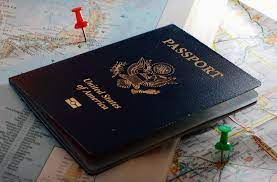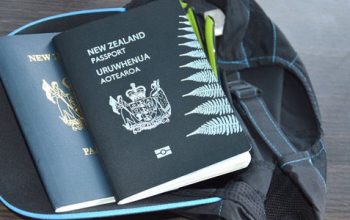Are you a Jamaican citizen dreaming of exploring the enchanting wonders of Turkey? Well, we’ve got great news for you! The process of obtaining a Turkish visa doesn’t have to be a daunting and confusing task anymore. In this comprehensive step-by-step guide, we will demystify the Turkey visa process specifically tailored for Jamaican citizens. So fasten your seatbelts and get ready to embark on an exciting journey towards uncovering all the secrets behind acquiring your Turkish visa hassle-free. Let’s dive in! Turkey Visa for Jamaica Citizens
Introduction To The Turkey Visa Process For Jamaican Citizens
If you are a Jamaican citizen planning to travel to Turkey, one of the most important things you will need to do before your departure is obtain a visa. A visa is an official document that grants you permission to enter and stay in a foreign country for a specific period of time. In this section, we will provide you with all the necessary information about the Turkey visa process for Jamaican citizens.
Before diving into the step-by-step guide on how to apply for a Turkey visa, it is important to understand that there are different types of visas available depending on your purpose of travel. The two main categories are tourist visas and business visas.
A tourist visa is suitable for those who plan on traveling to Turkey for leisure purposes such as sightseeing, visiting family or friends, or engaging in tourism activities. On the other hand, a business visa is required if you intend on conducting business activities in Turkey such as attending conferences, meetings, or negotiations.
Step 1: Determine Your Eligibility
The first step in the Turkey visa process is determining whether or not you are eligible for a Turkish visa. As mentioned earlier, Jamaican citizens require a valid visa to enter Turkey; however, there are certain exemptions based on your purpose of travel and length of stay. Turkey Visa for Kuwaiti Citizens
Why Visit Turkey?
Turkey is a country that has been attracting travelers from all over the world for decades. From its rich history and cultural heritage to its stunning landscapes and delicious cuisine, Turkey offers something for every type of traveler. If you’re a Jamaican citizen who is considering visiting Turkey, here are some reasons why you should definitely make it your next travel destination.
1. History and Culture
Turkey has a long and fascinating history dating back to ancient civilizations such as the Greeks, Romans, and Ottomans. As a result, the country is filled with historical sites and landmarks that offer a glimpse into its past. Some must-visit places include the Hagia Sophia in Istanbul, an iconic building that once served as both a church and mosque, as well as the ancient city of Ephesus with its well-preserved ruins.
The Turkish culture is also one of the most diverse in the world due to its location at the crossroads of Europe and Asia. You can experience this diversity through traditional music and dance performances, local markets selling handicrafts, or by simply interacting with friendly locals.
2. Stunning Landscapes
From picturesque beaches to majestic mountains, Turkey’s landscape offers endless opportunities for exploration and adventure. The famous Cappadocia region is known for its unique rock formations called “fairy chimneys” which can be explored through hot air balloon rides or hiking tours. The Mediterranean coastline boasts crystal clear waters ideal for swimming or relaxing on white sandy beaches.
Step-By-Step Guide To Obtaining A Turkey Visa For Jamaican Citizens
Obtaining a Turkey visa as a Jamaican citizen may seem like a daunting process, but it is actually quite straightforward. In this step-by-step guide, we will break down the process into easy-to-follow steps to help you successfully apply for and obtain your Turkey visa.
Step 1: Determine the type of visa you need
The first step in obtaining a Turkey visa is to determine the type of visa you need. As a Jamaican citizen, you will most likely need a tourist visa to visit Turkey. However, if you are planning to study, work or engage in business activities in Turkey, you will need to apply for the relevant type of visa.
Step 2: Gather all necessary documents
Once you have determined the type of visa you need, the next step is to gather all the necessary documents. This typically includes:
– A completed application form
– Valid passport with at least 6 months validity from your intended date of entry
– Passport-sized photographs
– Proof of travel arrangements (flight tickets)
– Proof of accommodation (hotel reservations)
– Travel insurance that covers your entire stay in Turkey
– Bank statements or other proof of sufficient funds to cover your expenses during your stay
Understanding The Different Types Of Visas Available
Turkey offers various types of visas for individuals looking to enter the country. Each type of visa has its own set of requirements and limitations, so it is important to understand the differences between them before applying. In this section, we will take a closer look at the different types of visas available for Jamaican citizens.
1. Tourist Visa:
A tourist visa is the most common type of visa issued by Turkey. It allows individuals to visit Turkey for tourism purposes such as sightseeing, visiting family or friends, or participating in cultural events. This type of visa is valid for 90 days and can be obtained either through an e-visa application or by applying at a Turkish embassy or consulate in Jamaica.
2. Business Visa:
As the name suggests, a business visa is required for individuals traveling to Turkey for business-related activities such as meetings, conferences, or trade shows. This type of visa also allows holders to engage in limited work-related activities during their stay in Turkey. The initial duration of stay on a business visa is 30 days but can be extended up to 90 days upon request.
3. Student Visa:
The student visa is required for those who wish to study in Turkey at any level – from primary school to university education. To obtain this type of visa, applicants must provide proof of acceptance into a recognized educational institution and sufficient financial means to support themselves during their studies.



